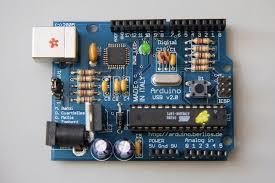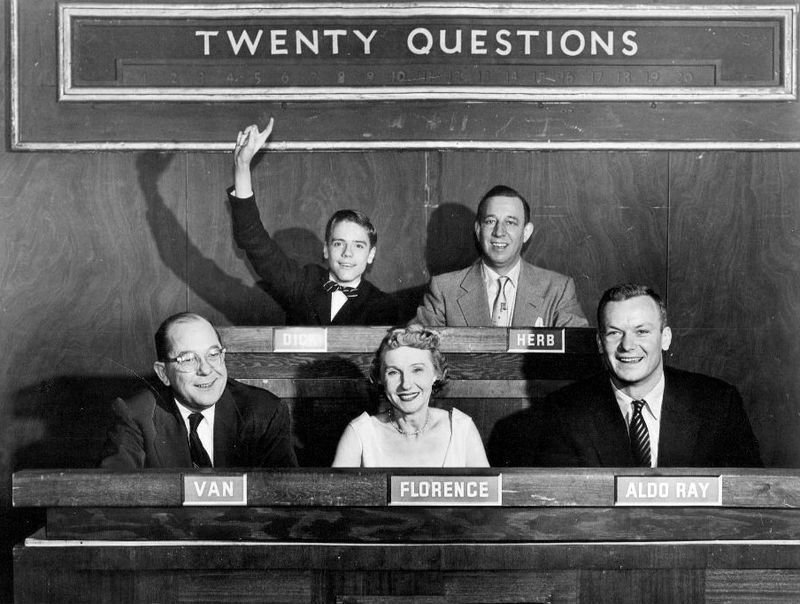"Open for business" by Gwen Franck is licensed under a Creative Commons Attribution 4.0 International License, except otherwise noted.

Contents
- 'Commons' ?
- What does it mean to make your work open?
- Issues and misunderstandings
- Advantages
- Examples
- How to
What is the "Commons"?

- a shared resource
- accessible to everybody
- natural/cultural/intellectual
- physical or digital (or both)
- can be collectively managed for individual or communal benefit
- state/market/commons
Commons as a fact
- public space
- anything that is not copyrightable
- anything that is out of copyright
- 'public domain'
Commons through act
- dedication to public domain
- use an open license and make your work open source - openly and freely accessible
Physical resources
- depletable
- exclusive
- rivalrous
- scarcity
Digital resources
- non-depletable
- non-exclusive
- non-rivalrous
- abundance (when placed in the commons)
The digital public domain/commons
The tragedy of the commons in the digital age
It has become very easy to make your work openly available online and to get access to other people's works - but it has also become much easier for third parties to block access
It's not because something is only 'one click away' that it is (legally) accessible or re-usable

Closing off the digital commons
- net neutrality
- Digital Rights Management
- very long protection time for (c) works
- 'status unclear: public domain works remain de facto inaccessible
- patent trolling

"I am so confused" by Ian Sane on Flickr CC BY 2.0
What does it mean to put work in the commons?
Use the full potential of the internet by making your work as accessible as possible
Find, access and re-use openly available works
In the digital commons!
Ownership/authorship in the digital commons
- work is no longer protected by intellectual property rights (IPR)
- work has never been protected by IPR and is in the public domain
- work has an open license and (conditional) re-use is allowed
- work has been dedicated to the public domain (the 'digital commons'

Create
Access
Re-use
Create
- make your work (and its metadata) online available
- use open formats and standards
- use an open license
- be clear and unambiguous about re-use conditions
- cite and acknowledge your own sources
- make use of the augmented versions of your work

Access
- cite and acknowledge the creator
- respect license conditions
- make any augmentations or adaptations openly available
- look for open source alternatives
- support designers and makers financially if possible

Re-use
- unconditional when in the public domain
- conditional when the work is openly licensed
- grey zone for works that have no known ownership but are 'available'

Open Source? Not for me!
aka common misunderstandings about the digital commons
I am not giving away my work for free!

Somebody else will steal my idea!

I want to control re-use of my work

It is not safe, I'm the only one who knows how my design works

Advantages of going open
VISIBILITY
make your work known globally
timestamp
see what happens with your work

BOOST INNOVATION
open = easy and quick access for the brightest minds around the world
first mover advantage

DESIGN GLOBAL - PRODUCE LOCAL
benefit from worldwide creativity
support local makers

SAVE MONEY
transaction fees
promotion/marketing
production costs
market research

COMMUNITY BENEFITS
going open makes it easier for like-minded communities accross the globe to connect and share their resources

SOCIETY BENEFITS
providing quick and free access can boost research into societal issues
level the playing field
'corporate social responsibility'

MAKE MONEY
first mover advantage
new forms of revenue
boost research and development

IMPROVE PORTFOLIO
take advantage of global input and re-use of your work
connect with likeminded people worldwide

EXAMPLES
Blender
- 3D creation suite
- openly licensed, all types of reuse allowed for free
- community of users and developers improve the product
- accept donations

Arduino
- microcontrollers
- open source hardware and software
- readymades are available commercially

https://www.arduino.cc
Image: By Matt Biddulph (Flickr: A hand-soldered Arduino) [CC BY-SA 2.0 (https://creativecommons.org/licenses/by-sa/2.0)], via Wikimedia Commons
OpenDesk
- locally made furniture based on digitally available open designs
- platform, maker and designer get fee when a product gets made

The Noun Project
- Icons and logo's
- Free reuse: attribution required
- Freemium model - unlimited royalty free access
- Creator of icon retains copyright

Freesewing
- an open source platform for made-to-measure sewing patterns
- all patterns, docs, API are openly available and adaptable

Wikimedia
- openly licensed and public domain content only
- re-use: free but conditional: attribution and open licensing (when original is (c) )

Android
- largest mobile operating system in the world
- source code is open, even for competitors

Wikihouse
- (a.o.) tool library for open source house designs

Roden
- bike designs
- can be adapted to your own needs
- available under a CC BY-SA 4.0 license
- adaptations must be shared under the same license

Farmhack
- (a.o.) tool library for open source farming tools

TESLA
- TESLA puts its car designs as open source and files as little patents as possible (although some say this is not true)
- Elon Musk cites environmental concerns - Tesla can't keep up production in order to ensure

Open Licensing
Take action and make sure your work is as openly available as possible, on your own terms

(I am not a lawyer ...)
A license is a document that specifies what can and cannot be done with a work (whether sound, text, image or multimedia). It grants permissions and states restrictions.
Broadly speaking, an open license is one which grants permission to access, re-use and redistribute a work with few or no restrictions
A patent for an invention is granted by government to the inventor, giving the inventor the right to stop others, for a limited period, from making, using or selling the invention without their permission.
"Traditional" copyright
- automatically
- "protects" for x amount of time
- conditions (variable)
- exceptions possible
- current laws: not adapted to digital age
Open Licensing
- rights holder determines beforehand what can and cannot happen with the work
- aim: facilitating re-use
- conditions may apply
- no need to ask permission for re-use (when conditions are respected)
If you make it clear from the start what can be done with your work ...
- access
- attribution
- re-use
- modification
- commercial use
- ...
... others can build upon your work without fear of violating your author rights.










How to apply
- pick a license
- Attach it to your work
- copy the license text and the logo
- and link to the original text
"Open for business" by Gwen Franck is licensed under a Creative Commons Attribution 4.0 International License, except otherwise noted.

KEEP IN MIIND
Open Licenses build on existing author rights
Copyright rules and have only juridical value when these rules are applicable
You cannot license (i.e. claim author rights) on stuff that is not copyrightable
You cannot license something if you are not the rights owner or do not have their permission
Some reuses are allowed without license
there are plenty of exceptions on existing copyright laws for research and development and educational purposes
a license then only provides the benefit of clarity
A license is not a toy (even if it has a nicely designed logo!)
It has juridical value, and cannot be revoked at random. If you decide to change or remove the license you applied, it is possible that the version with the original license remains available
If you don't respect the conditions of the license, you are breaching copyright law and you can be sued
The easier you make it for somebody to figure out their rights, the more likely it is that they will respect them!
Be clear and unambiguous when creating and displaying your work's metadata (i.e. the information about your work)
If you re-use openly licensed or public domain works, be clear about your source and its original licenses (if applicable)
Where do I find openly licensed materials?

search engines




Image credits & interesting links
- All icons: The Noun Project
- Background image: http://atfab.co/oswunderkammer/
- All other images not credited on the slides: Wikimedia Commons
- Interesting reads:
- http://opendefinition.org
- http://creativecommons.org
- All Wikipedia articles related to Open Source
- John Oliver on net neutrality
- http://danskdesigncenter.dk/en/understand-open-source-manufacturing-30-minutes
Contact
gwenfranckgcv@gmail.com
@g_fra
skype: gwen.franck1
"Open for business" by Gwen Franck is licensed under a Creative Commons Attribution 4.0 International License, except otherwise noted

Open for business
By gwen
Open for business
Presentation delivered as a guest lecture for students Industrial Design, Ghent University (Campus Kortrijk) on 5 December 2017
- 2,945










